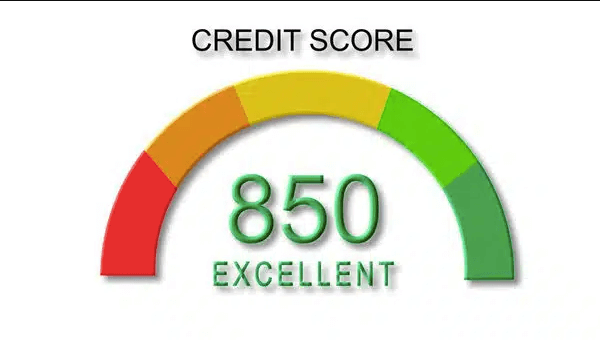Introduction: The Significance of a Good Credit Score
It serves as a key determinant of your creditworthiness, influencing your ability to secure loans, obtain favorable interest rates, and access various financial opportunities. Among the various credit scores, achieving an 800 credit is considered an impressive feat. This article will delve into the significance of an 800 credit score, the benefits it brings, and the strategies to achieve and maintain this excellent rating.
Understanding Credit Scores
2.1 What is a Credit Score?
t is a three-digit number that lenders use to assess the risk of lending money to a borrower.
2.2 How Credit Scores are Calculated
Credit scores are calculated based on various factors, including payment history, credit utilization, credit history length, credit mix, and recent credit inquiries. These factors are analyzed by credit reporting agencies, such as Experian, Equifax, and TransUnion, who generate credit reports and assign credit scores.
The Importance of an 800 Credit Score
3.1 Benefits of an 800 Credit Score
Achieving an 800 credit comes with a multitude of benefits. It demonstrates a high level of creditworthiness and financial responsibility, making you an attractive borrower in the eyes of lenders. Some key benefits of an credit score include:
- Access to Lower Interest Rates: With an credit score, you are more likely to qualify for loans and credit cards with lower interest rates. This translates to significant savings over time and lower borrowing costs.
- Enhanced Loan Approval Chances: Lenders view individuals with excellent credit scores as low-risk borrowers, increasing your chances of loan approval. Whether you’re applying for a mortgage, auto loan, or personal loan, an credit score strengthens your position.
3.2 Financial Opportunities with an 800 Credit Score
Apart from the immediate benefits, an credit score opens doors to various financial opportunities. These include:
- Higher Credit Limits: Lenders are more inclined to extend higher credit limits to individuals with excellent credit scores. This provides you with greater purchasing power and flexibility.
- Real Estate Advantages: When buying a home, an credit score improves your chances of securing a mortgage with favorable terms and competitive interest rates.
How to Achieve and Maintain an 800 Credit Score
To achieve and maintain an credit score, it’s essential to adopt responsible credit management practices. Here are some strategies to help you reach this excellent rating:
4.1 Pay Your Bills on Time
Consistently paying your bills on time is crucial for building and maintaining a strong credit score. Set up payment reminders, automate payments, and prioritize timely bill settlement to avoid late payments that can negatively impact your score.
4.2 Keep Your Credit Utilization Low
Credit utilization refers to the percentage of available credit that you utilize. Aim to keep your credit utilization below 30% to demonstrate responsible credit management. Regularly review your credit card balances and consider paying off debts or increasing your credit limits to keep utilization in check.
4.3 Maintain a Diverse Credit Mix
Having a diverse credit mix, including credit cards, loans, and mortgages, can positively influence your credit score. However, ensure you can manage your credit responsibly and only obtain credit accounts that you genuinely need.
4.4 Lengthen Your Credit History
Maintain older credit accounts, even if they have a low balance, to demonstrate a long credit history. Avoid closing old accounts unless necessary.
4.5 Avoid Frequent Credit Inquiries
Minimize unnecessary credit applications and consolidate multiple inquiries within a short period to mitigate the impact on your credit.
4.6 Monitor Your Credit Report Regularly
Regularly monitoring your credit report allows you to identify and address any errors or discrepancies promptly. Obtain free copies of your credit reports annually from each credit bureau and review them for accuracy.
Common Myths about Credit Scores
5.1 Myth #1: Closing Credit Card Accounts Improves Credit Score
Closing accounts reduces your available credit and may shorten your credit history, negatively affecting your credit utilization and credit mix.
5.2 Myth #2: Checking Your Credit Score Lowers It
Checking your credit score or obtaining a free credit report does not impact your credit score. These are known as soft inquiries and have no negative effect on your credit rating. Read more…
Conclusion
Achieving an 800 credit score is a testament to your financial responsibility and opens up a world of opportunities. With lower interest rates, enhanced loan approval chances, and access to premium credit cards, an excellent credit score empowers you to achieve your financial goals.
FAQs
1. Can I achieve an credit score quickly? Building an credit score takes time and consistent responsible credit management. While it may not happen overnight, with diligent effort and adherence to best practices, you can gradually improve your score.
2. Is it necessary to carry a balance on my credit cards to improve my credit score? No, carrying a balance on your credit cards is not necessary to improve your credit score. Paying your balances in full and on time demonstrates responsible credit usage.
3. Will my credit score be affected if I cosign a loan for someone else? Yes, cosigning a loan makes you equally responsible for the debt. Late payments or defaults by the primary borrower can negatively impact your credit score.










